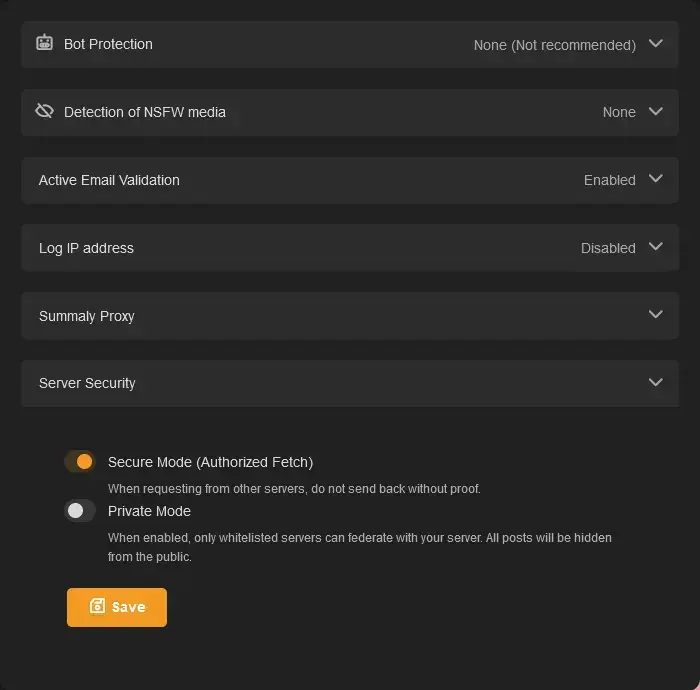- cross-posted to:
- [email protected]
- cross-posted to:
- [email protected]
This shouldn’t come as a huge surprise. Meta is moving forward with their plans for Theads and the Fediverse, and their adjusted terms reflect a new impending reality for Fediverse users.



This wouldn’t matter. Defederating means you don’t pull their data, not the other way around.
The article is just describing how ActivityPub works. What would be more important is how they claim to use that data. But that they collect that data is inherent to how the protocol works. They’d have to mention they collect it legally.
Defederation actually does work both ways if the instance enables
AUTHORIZED_FETCH. That setting requires 3rd party systems to prove their identity before they can retrieve any data, which allows an instance to block defederated domains. I don’t know if Lemmy or Kbin supports that, but practically all of the microblogging fedi software does (that being Mastodon / GlitchSoc, Pleroma / Akkoma, Misskey / FoundKey / FireFish, and GoToSocial).Except that means you defederate from everyone but whitelisted instances in that scenario. If I recall, it doesn’t work as a blacklist, but as a whitelist.
You’re thinking of LIMITED_FEDERATION_MODE, which is different from AUTHORIZED_FETCH.
Looking into it, aren’t both of these only Mastodon and not part of ActivityPub itself? I can’t find details on them outside of Mastodon.
And what prevents the post from getting published to other instances from different sources?
They are mastodon-specific, but most fedi software has a similar feature. Or at least, all of the mainstream microblogging software does, as well as some of the image / video sharing platforms. I’m unsure about Lemmy and Kbin. Here are the equivalent settings for FireFish: